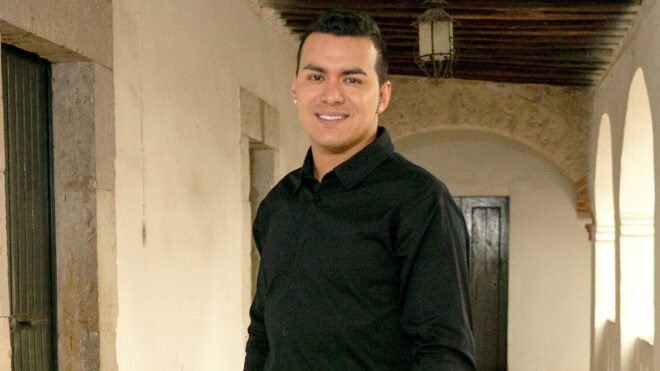I'm forever in debt with my sister-in-law, who had the courage of suggesting to me that my son should be evaluated for Aspersger syndrome, a kind of autism. His father and I had spent more than a year consulting psychologists and pediatricians, looking for the cause to his obviously impaired social skills. I wondered–very briefly and often in the shower or just before going to sleep–if my baby's problems were more developmental than behavior related, but never paid enough attention to the idea until she mentioned it.
It's not an exaggeration to say that her words changed our lives, and for the better.
Read more ¿Qué más?: 5 Ways you can help a new mom of a kid with special needs
I admit that most people would find it excruciatingly difficult to say something like that to a mom. Our case is different. My niece, her daughter, has down syndrome, so the different developmental obstacles that children can face were part of our vocabulary. We all had been educated on the challenges of raising a kid with special needs. It still wasn't something easy to hear, however welcome.
When I asked the school counsellor about the idea of having my son evaluated for Asperger, her response infuriated me more than I can describe. She said: "Yes, definitely." By then, my son was in the 5th grade and had struggled so much. He had also missed the incredible benefit of an early intervention.
Lucky for us, that anger propelled us to find help. In a few days he was evaluated and, although he doesn't qualify for a definitive Asperger diagnosis, he does exhibits some of the social handicaps that fall on the spectrum of autism. A year later–a year which included a change of schools, occupational and psychological therapy and a lot more patience from us–we know that he is not just throwing a tantrum or being rude. He has blossomed in ways that we never imagined and even has managed to make a couple of very good friends.
My sister-in-law is one of my heroes, for this story and many more that don't apply to this context. Based on my experience and in chats with other moms of children with special needs, specifically with award-winning Telemundo journalist Sofía Lachapelle (who has two children with autism and is the founder of Un paso a la vez for Latina mothers of children with special needs), families and close friends often don't know what to say or how to help. It's not unheard of for an abuelita or a tía blurting out the wrong thing.
This are five things that you can do to help if you love a mother of a child with special needs:
1. Say it if you see something. Lachapelle told me that her sister wasn't surprised at all we she told her that her son had been diagnosed with autism: "She said she had noticed something *'rarito'–*I wish she had said something." Something like that is not easy to say, even harder to hear, but believe me, the sooner a child with special needs get help, the better. Every day counts.
2. Don't feel sorry for them. Yes, raising a child with special needs can be challenging. Less pity and more strength can go a long way. If you are struggling with the diagnosed of your nieto or nephew, put on your poker face and deal with it.
3. Offer support in specific way. You have NO idea how hard it's to ask for help. It feels as if you turn your head to ask for a favor, all the balls you have in the air will fall and break. Everybody needs dinner, a ride, a donation in the bank account (no strings attached, if you can), also help with the rest of the kids or to keep the house tidy are more than welcomed.
4. Inform yourself. Lachapelle told me that she asked her son's therapist to explain his case to her mom. You can't imagine how much drama that conversation saved.
5. Don't dissparear. It's normal not to know what to say, but even then it's important to be present. Just be honest and be there.
Image víaThinkstock




